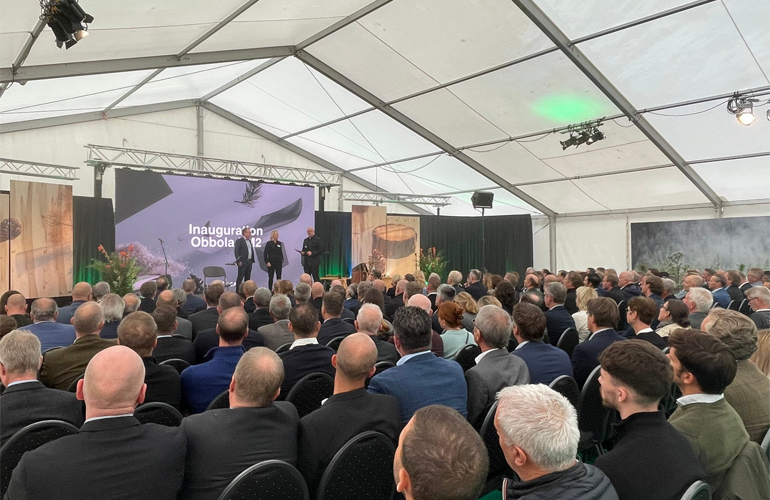Swedish forest industry major Svenska Cellulosa Aktiebolaget (SCA) has held an official inauguration of its new paper machine for the production of kraftliner at its Obbola paper mill in Umeå, Sweden.
Var vänlig ladda om sidan
Vill du läsa hela artikeln?
- Six editions per year
- Full access to all digital content
- The E-magazine Bioenergy international
- And more ...
This means that the paper mill has the world’s largest machine for kraftliner and with it a significantly increased capacity to produce climate-smart packaging material.
This is very good for SCA’s and Obbola’s competitiveness and gives us a better ability to deliver in a market that needs to grow as fossil packaging materials are phased out, said Gustaf Nygren, Mill Manager at SCA Obbola.
Kraftliner production capacity at SCA Obbola has increased from 450,000 tonnes to 725,000 tonnes annually.
The investment is good for our existing customers, but also for completely new ones. We see that more and more customers are focusing on sustainability and then the combination of renewable raw materials, resource efficiency in recycling fiber, and fossil-friendly manufacturing processes is attractive, said Mikael Frölander, Marketing and Sales Director for SCA Containerboard.
World’s largest kraftliner machine
The most visible change at the facility is the addition of the world’s largest machine, supplied by Germany-headed Germany-headed technology company Voith GmbH & Co. KGaA (Voith) for the production of kraftliner.
The paper machine (PM) is 250 meters long and is estimated to weigh around 11,000 tonnes.
As part of the project, which entailed an investment of approximately SEK 7.5 billion (approximately EUR 633.42 million), work environment improvements, a high-capacity recycled fiber line, and a completely new lime kiln are also included.
The recycled fiber line enables SCA Obbola to receive and process 1,700 tonnes of recycled fiber per day, and the new lime kiln means that biofuels can be used instead of oil.
The latter reduces the use of oil by 8,000 m3 per year and contributes to a saving of 20,000 tonnes in fossil carbon dioxide (CO2) emissions.
Obbola is now reaching a level where the industrial processes are basically fossil-free. The fact that we also get a proper capacity to recycle fibers and create even more climate-smart material is good for both our business and for the conversion of other industries’ packaging, said Gustaf Nygren.
Close cooperation
Per Strand, the Project Director for Expansion Obbola emphasized that one of the success factors in the work has been the very close collaboration between the mill management, market, and suppliers.
There is a lot of teamwork behind this and overall we are incredibly satisfied and proud of how the project went and how our industry now looks. The important work of tuning and ramping up to full capacity is now underway, remarked Per Strand.



